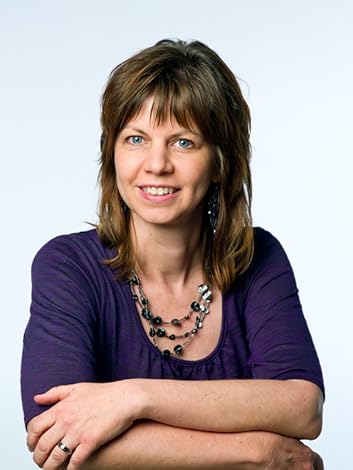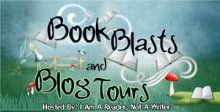
How did you develop your plot and characters? The plot for After the Snow Falls came to me almost all at once. I wrote the whole thing and didn’t like it at all. The climax wasn’t climactic. I put it aside and thought about things for a while and I realized that the story needed Alfie. He was part of the story all along, but I hadn’t developed him fully as a point of view character. Once I began to really flesh Alfie out, I couldn’t imagine the story without him. Although I love Celia and her storyline, Alfie is my favorite character in the story.
I tend to follow the rule that you find out enough about the characters to get started writing and after that, the characters will take care of making the story happen. If I get stuck, I go back to some brilliant character-development tools created by Holly Lisle. They’re different from the standard character-development worksheets in that they go deeper and have you focus more on motivation than say, the character’s favorite movie or whether he’s left or right-handed.
What was the hardest part about writing this book? I’ve learned a lot more about how to write more quickly, but I wrote After the Snow Falls over quite a long period of time–with life interruptions like the birth of a third child and a move to China. Having never experienced any difficulties in pregnancy myself, I wrote the part of Celia’s infertility and frequent miscarriages from information I researched on the Internet. But when it came time for revision, I was working through those scenes while I was actually going through a miscarriage myself. That was tough.
How much of the book is realistic? The character of Michaela is based on a family friend who died at the age of four from leukemia. And although the circumstances are completely different, Celia’s walk through forgiveness and toward healing is something my husband and I lived through in a difficult experience we encountered soon after coming to China. My locations are often fictional–there is no actual town in Quebec called Point-du-Fleuve, like in After the Snow Falls, but there is an actual location that inspired that setting. You can see more about that location here.
What are your goals as a writer? My goal is to create a good story that stays with the reader, characters who feel like the reader’s friends, and when the last word is read, I hope a message of hope is clear.
Do you have to travel much concerning your book(s)? I set After the Snow Falls in a location that’s familiar to me: the Ottawa Valley where my husband grew up and where his parents live today. The story I’m working on now, with the working title What the Girl Knew, is set in Ontario, Canada, also in a location familiar to me. My middle-grade novel is set in the Amazon rainforest. While I’ve been close–three different cities in Brazil–I haven’t been to the heart of the Amazon basin yet (but I’d love to go). I do a lot of research into locations I haven’t encountered, and readers tell me I’m able to evoke vivid, convincing imagery.
Have you ever considered anyone as a mentor? I have a number of writing mentors. I took my first writing course from Bonnie Hearn Hill, and she was very influential and encouraging with my first writing attempts. Cec Murphey has also been a huge supporter and mentor. He really helped me hone my writing skills. Although I’ve never met him or interacted beyond an email or two, I’ve also learned a lot from James Scott Bell.
Where do you see yourself in five years? Our life took a huge turn when we moved to China. My husband took an exploratory trip in February/March of 2008 and in July we moved here. I couldn’t have predicted that move even a few months before, so I have a hard time predicting what life will be like five years from now!But I believe we’ll still be in China, and I hope that I’ll have seen more of my stories published.
What contributes to making a writer successful? I’ve had one book published, so my “success” isn’t as great as some authors who have published multiple times, but I can speak from the degree of experience I’ve had. It would be nice if there were some magical, secret-formula answer for this one, but the real answer is much more boring: hard work, determination and discipline. In order to be successful, a writer needs to be able to learn from others, to dig that knowledge out and apply it to his or her writing, and then write, write, write.
Buy Now @ Amazon
Genre – Inspirational
Rating – PG (some difficult subject matter)
More details about the author & the book
Connect with Carey Jane Clark on Facebook & Twitter & Pinterest










No comments:
Post a Comment